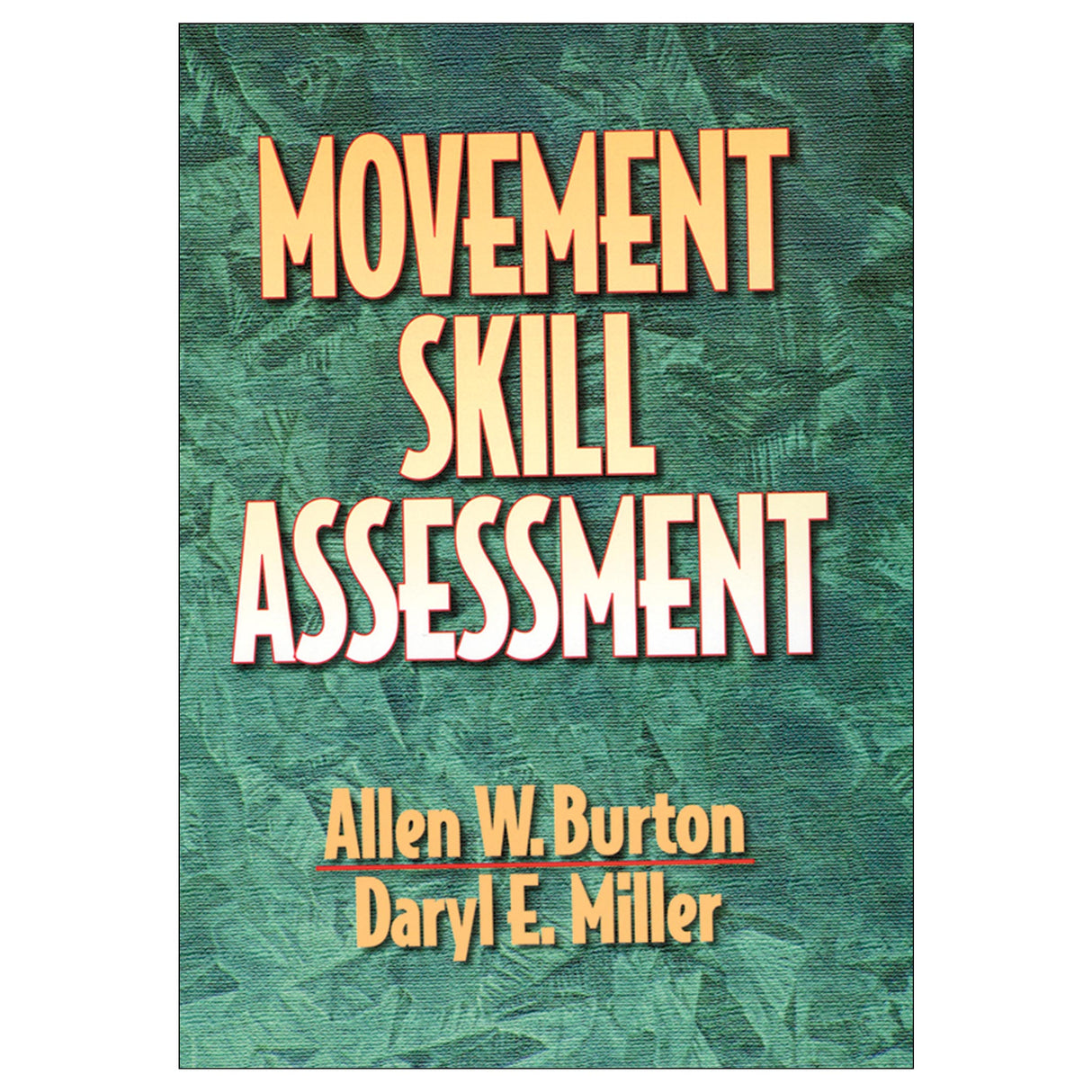Movement Skill Assessment
Author: Allen Burton, Daryl Miller
$19.00 CAD
This unique text focuses exclusively on the assessment of movement skills, offering background information, discussions of six levels of movement skill assessment, and strategies for implementation. Practical and user-friendly, Movement Skill Assessment helps readers acquire the skills they need to successfully carry out their assessment responsibilities.
Filled with information on more than 150 tests and including more than 650 references, the book emphasizes a top-down, functional approach to the assessment of movement skills. Part I addresses basic issues that the reader should understand before attempting to assess movement skills:
-Purposes of movement skill assessment in educational and therapeutic environments
-Definitions and classifications of movement skills
-Measurement concepts and calculations
-Theoretical approaches to movement skill assessment
-Validity and reliability
Readers will also find a detailed history of movement skill assessment, beginning before 1850 and continuing through 1974, after which a proliferation of assessment instruments appeared.
Part II discusses the six levels of the movement skill taxonomy:
-Movement skill foundations
-Motor abilities
-Early movement milestones
-Fundamental movement skills
-Specialized movement skills
-Functional movement skills
This section also includes eight in-depth critiques of popular assessment instruments, such as the Test of Gross Motor Development, the Movement Assessment Battery for Children Checklist, and the Bruininks-Oseretsky Test of Motor Proficiency.
In Part III readers will learn how to achieve the goals of movement skill assessment. They'll find an overview of the assessment process, from selecting an appropriate measurement tool to collecting and treating data to interpreting results; a comparison of bottom-up and top-down assessment strategies; and an examination of the latest trends and developments in movement skill assessment.
The book's appendixes categorize and summarize 45 commonly used assessment instruments, present 35 selected standards for test users from the Task Force on Standards for Measurement in Physical Therapy, and provide a Z-score table for performing normative calculations.
Audience
Reference for adapted physical education specialists, physical education teachers, physical therapists, and occupational therapists. Recommended reading or supplemental text for undergraduate or graduate courses in these areas.
Part I. Basic Issues in Movement Skill Assessment
Chapter 1. Purposes of Movement Skill Assessment
Chapter 2. A History of Movement Skill Assessment
Chapter 3. Defining and Classifying Movement Skills
Chapter 4. Basic Measurement Concepts
Chapter 5. Approaches to Movement Skill Assessment
Chapter 6. Validity and Reliability
Part II. Levels of Movement Skill Assessment
Chapter 7. Assessing Movement Skill Foundations
Chapter 8. Assessing Motor Abilities
Chapter 9. Assessing Early Movement Milestones
Chapter 10. Assessing Fundamental Movement Skills
Chapter 11. Assessing Specialized and Functional Movement Skills
Part III. Implementing Movement Skill Assessment
Chapter 12. The Assessment Process
Chapter 13. Two Strategies for Movement Skill Assessment
Chapter 14. New Directions in Movement Skill Assessment
Appendix A1. Summary of Movement Skill Assessment Reviews
Appendix A2. Movement Skill Assessment Reviews
Appendix B. Standards for Test Users
Appendix C. Areas Under the Normal Curve





